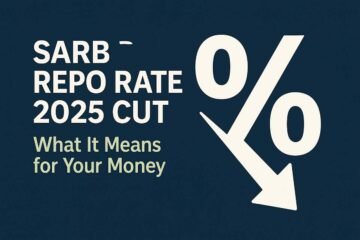South Africans are feeling the constant push and pull of global markets, exchange rates, and local policies at the pump. On 30 September 2025, the Department of Mineral Resources and Energy (DMRE) confirmed some relief for diesel users — while petrol is edging higher. Here’s the breakdown of the latest diesel fuel prices, what’s driving the changes, and what this means for households, businesses, and the economy.
Latest Adjustment (October 2025)
According to the DMRE and recent News24 reports (News24):
- Diesel: Wholesale diesel dropped by 8 c/litre (0.005% sulphur) and 10 c/litre (0.05% sulphur).
- Gauteng wholesale price: now R19.34/litre
- Coastal wholesale price: now R18.51/litre
- Petrol (95 unleaded): Increased by 8 c/litre, bringing the Gauteng retail price to R21.63/litre.
- Petrol (93 unleaded): A minimal increase of 1 c/litre.
- New levy: Petrol also carries a 6.1 c/litre retail margin increase, introduced to fund wage hikes for pump attendants at service stations.
This means while diesel users can expect some relief, petrol users will see slightly higher costs at the pump.
Why the Difference Between Petrol and Diesel?
The divergence in price movements stems from multiple factors:
- Exchange rate relief: The rand strengthened against the US dollar (from around R17.73 → R17.49), helping to lower import costs for refined products.
- Crude oil dynamics: Global oil prices eased slightly, benefiting diesel import costs.
- Policy interventions: The petrol increase is largely due to the new retail margin levy, a cost passed directly to consumers to support wage adjustments in the fuel retail sector.
- Wholesale vs. retail pricing: While diesel saw wholesale relief, the final pump price depends on logistics, margins, and regional variations.
Impact on South Africans
- Households & commuters: Petrol users will notice a modest increase, especially those reliant on 95 unleaded.
- Business & logistics: Diesel price cuts provide slight relief to transport companies, farmers, and heavy industries. Even a small decrease can translate into lower operating costs when multiplied across fleets and machinery.
- Inflation pressure: Fuel prices are a key driver of food and goods costs. Diesel relief could help ease inflation slightly, but petrol hikes balance out some of that benefit.
- Small businesses: Retailers, delivery services, and SMEs relying on diesel generators (especially during load shedding) may see some cost savings.
Outlook: What to Watch Next
Looking ahead to the rest of 2025:
- Diesel volatility remains: Future cuts depend heavily on crude oil trends and rand strength. Any geopolitical shocks or currency weakening could reverse the relief.
- Petrol may stay under pressure: The margin levy highlights how regulatory factors — not just market ones — can push prices upward.
- Cleaner fuels transition: Investments in refinery upgrades and clean fuel standards could add costs in the medium term.
- Import reliance: With local refineries operating below capacity, South Africa remains highly exposed to global supply chain swings.
How to Manage Fuel Cost Pressures
For businesses and households:
- Track monthly adjustments — follow DMRE or AA updates for mid-month forecasts.
- Budget for volatility — assume fluctuations in the range of 20–40 c/litre month to month.
- Optimize consumption — route planning, fuel-efficient vehicles, and generator scheduling all help.
- Hedge where possible — larger businesses can explore fixed contracts or financial hedging.
- Pass-through pricing — service providers should factor fuel costs into delivery or contract rates.
Conclusion
The latest fuel price adjustment offers welcome relief for diesel users, but petrol drivers will feel a pinch thanks to regulatory levies. This dual movement underlines the complex mix of global oil trends, exchange rates, and domestic policy shaping South African fuel prices.
For now, businesses in logistics, agriculture, and transport will breathe a little easier — but volatility remains the name of the game. Staying informed and planning ahead is the best way to shield your pocket and business from pump price shocks.


0 Comments